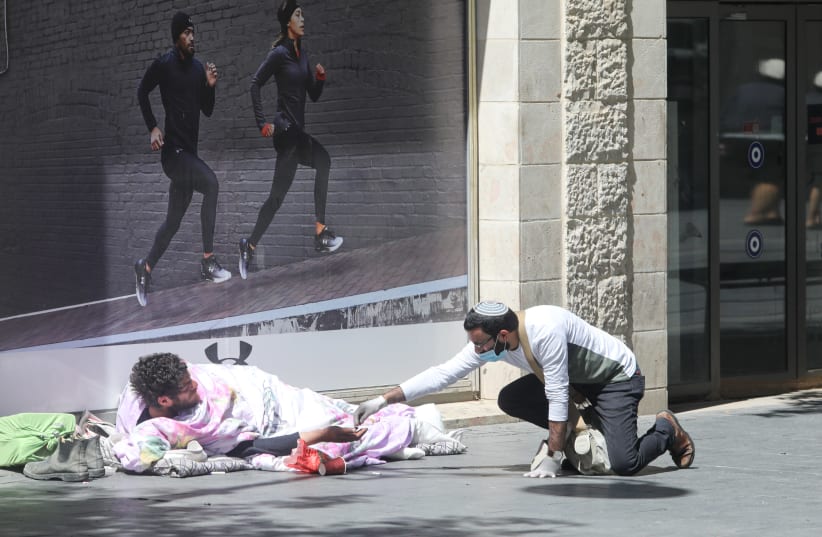As individuals, we experience the ripple effect of the decisions taken by our community to protect us against this threat. Yet, our past personal experiences, associations we have formed to these past experiences, influence how we respond to this collective crisis.
As individuals, our personalities manifest in our behaviors, while as a community we engage in conflict, tension and the formation of polarizations. A reactive loop occurs in which the community reacts to the threat, the individuals react to that reaction, and in turn influences the reaction of the community, which is then felt again by the individuals. Meanwhile, the common denominator throughout this loop is control; having it or losing it. Meaning is a stabilizer for our sense of control.
We are human beings, individuals who depend on a social construct. If we, as individuals, operate on the basis of developing strategies which are meaningful for our survival, it therefore follows that we, as a community, develop a common sense which is necessary for the survival of our community.
Human paradox
Donald Winnicott (1989) describes the human paradox: in order for an infant to develop a sense of self as independent from others, it is dependent on the other to provide the environment in which to develop this sense.
All animals can respond to these questions:
What (identifying/recognizing) – was that sound?
Where (direction/location) – do I go for shelter?
When (time) – do I have to go and find a mate.
Who (other) – do I choose to fight?
Which (selection) – is my pack?
How (action) – will my cub get food?
Only humans ask Why – from infancy to our last breath. Dr. Rebecca Palacios writes: “Our children’s first experiences in asking and answering “why” questions in their quest to understand the world they live in are the building blocks of deep thinking and will help prepare them for the future... Even as adults, we question the “why” of many things not in our control.”
Behavior as communication
I step back and look at what is taking place. On the one hand, I see; living in fear, violence, fragmentation, individual/self-serving agendas, “fake news”, and blaming. On the other hand, I see; compassion, creativity, adaptation, connections, and optimism.
We are witnessing an exceptional event taking place in exceptional times. We are using our technological and scientific advances in ways never imagined. At the same time, we are being humbled by how incomplete and, at times lacking, are these advances and our realm of expertise. We are witnessing that our capacities to cope with this threat, our emotions and how we relate to each other, lags behind developmentally speaking compared to technological advances.
A common-sense solution
We human beings are builders; we build connections. One element we can use to build a bridge between our differences is mutuality. Between the collective crisis and personal experience, support, empathy, sympathy and affinity, can become the planks that we spread across the gap and bring our personal best to build a safer and stronger community.
After all, we are all in this together.
The writer is a creative arts psychotherapist living and working in Ra’anana
